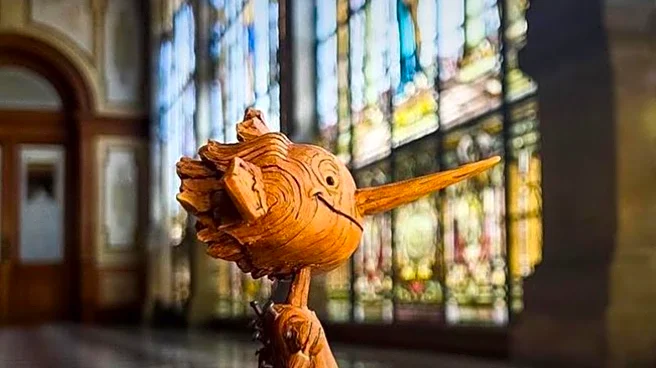What's Happening?
The Mütter Museum in Philadelphia has announced a new policy regarding the exhibition of human remains. This policy shift, revealed on August 19, aims to focus on the lives of the individuals whose remains are displayed and the evolution of medical history. The museum's senior director of interpretation and engagement, Sara Ray, emphasized that the new approach seeks to honor both the individuals and the public. This change follows the Postmortem Project, a two-year initiative involving community input and interactive exhibits. The museum, known for its medical history displays, has faced controversy over its handling of human remains, particularly after former executive director Kate Quinn removed online exhibits as part of an ethical review.
Why It's Important?
The Mütter Museum's policy change reflects a broader trend among museums to reconsider the ethical implications of displaying human remains. This shift is significant in the context of ongoing debates about the treatment of human remains in cultural institutions, especially following investigations into the retention of Indigenous remains by museums. The museum's decision may influence other institutions to adopt similar policies, potentially leading to a more respectful and educational approach to such exhibits. This development also highlights the importance of community engagement and ethical considerations in curatorial practices.
What's Next?
The Mütter Museum plans to implement its new policy through updates to guided tours, object labels, and digital materials. This approach may serve as a model for other museums facing similar ethical dilemmas. The museum's leadership will likely continue to engage with the public and experts to refine its practices. Additionally, the museum's experience may contribute to broader discussions about the role of museums in preserving and presenting human history ethically.










